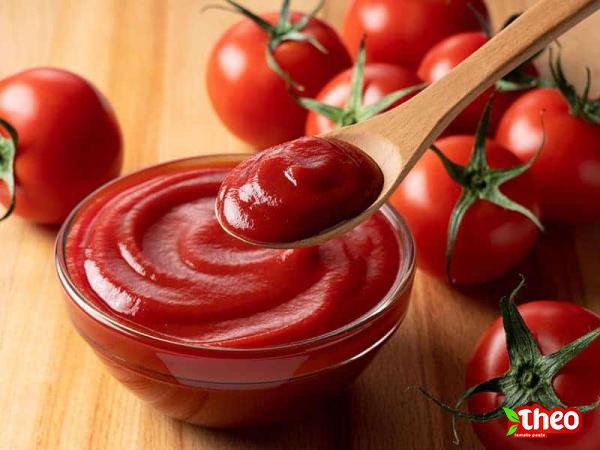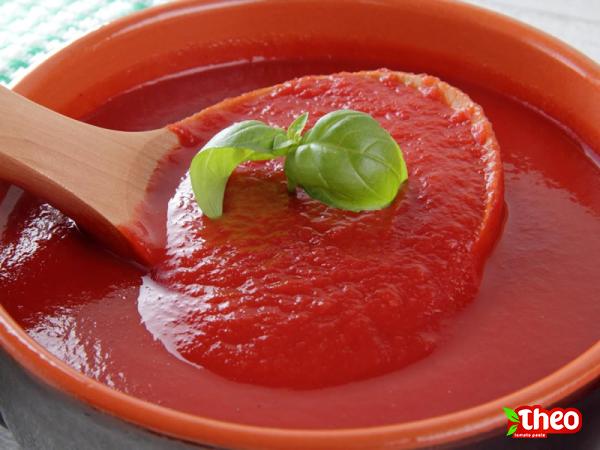Italian cuisine is renowned for its rich and flavorful sauces, and one of the most popular and versatile options is thick Italian tomato sauce. This classic sauce, known for its robust taste and velvety texture, has become a staple in households and kitchens worldwide. Made from ripe tomatoes, a variety of aromatic herbs, and other seasonings, thick Italian tomato sauce can be used in a myriad of dishes, from pastas and pizzas to stews and soups. One of the distinguishing characteristics of thick Italian tomato sauce is its intense flavor profile. The ripe tomatoes, ideally San Marzano variety, are the star ingredient that gives the sauce its natural sweetness and tanginess. These tomatoes are known for their firm texture, low acidity, and rich flavor, making them the perfect base for a thick, delicious sauce. The longer cooking time helps to intensify the flavors, resulting in a sauce that is packed with depth and complexity. To enhance the flavor further, a combination of aromatic herbs and seasonings are typically added to the sauce. Common herbs include basil, oregano, thyme, and bay leaves, which lend their distinct flavors and aromas to the sauce. Garlic and onions are also commonly used to add depth and complexity to the sauce, while a pinch of sugar can help balance the acidity of the tomatoes. Other seasonings such as salt, black pepper, and red pepper flakes can be added to taste, depending on personal preference. The process of making thick Italian tomato sauce involves a few simple steps. First, the tomatoes are typically blanched, peeled, and deseeded to create a smooth consistency. The tomatoes are then cooked down slowly over low heat, allowing the flavors to develop and the sauce to thicken. This slow-cooking process can take anywhere from one to several hours, depending on the desired consistency and flavor intensity. Stirring occasionally helps to prevent the sauce from sticking to the bottom of the pot and ensures even cooking. The versatility of thick Italian tomato sauce is one of its biggest advantages. It can serve as a base for a wide range of dishes and can be customized to suit individual preferences. For a classic Italian pasta dish, the sauce can be tossed with al dente spaghetti or any other pasta of choice. It can also be used as a topping for pizzas, providing a flavorful base for all the other ingredients. Additionally, the sauce can be used in stews, soups, casseroles, and even as a dipping sauce for bread or fried appetizers. What makes thick Italian tomato sauce even more appealing is its nutritional value. Tomatoes are naturally rich in vitamins A, C, and E, as well as potassium, iron, and antioxidants. They are also a great source of lycopene, a powerful antioxidant that has been linked to various health benefits, including reducing the risk of certain cancers and heart disease. By using fresh, ripe tomatoes and minimal added ingredients, the sauce retains the nutritional benefits of this vibrant fruit.
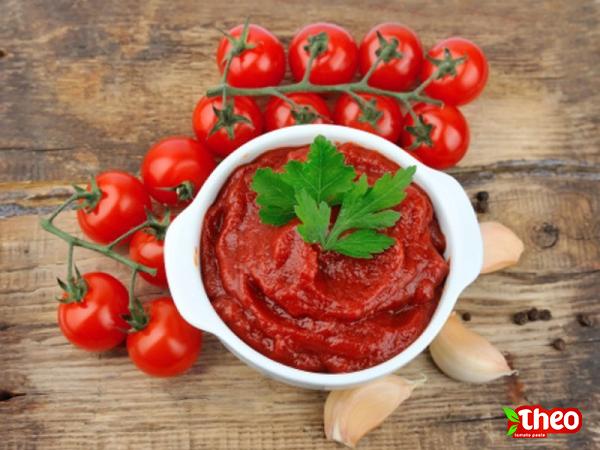
tomato paste
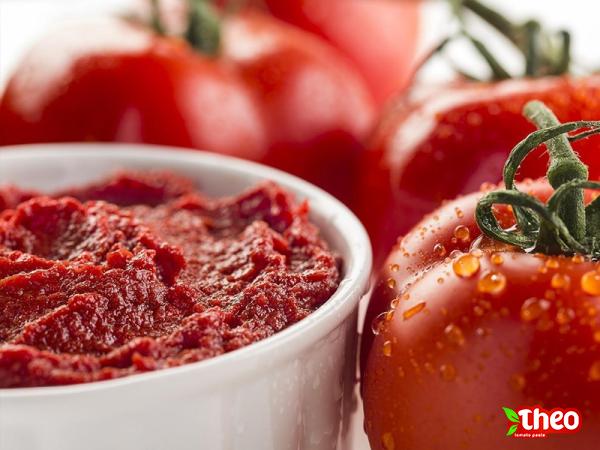 When it comes to buying thick Italian tomato sauce, there are several options available. Many grocery stores offer a wide range of commercially prepared sauces, both in shelf-stable and refrigerated sections. These sauces can vary in quality, so it is essential to read the labels and choose ones that are made with natural ingredients without unnecessary additives or preservatives. However, for those who prefer homemade flavors or want to experiment with different ingredients, making the sauce from scratch is a rewarding and enjoyable process. In conclusion, thick Italian tomato sauce is a delicious and versatile sauce that adds depth and flavor to a variety of dishes. Its robust taste, velvety texture, and rich aroma are a testament to the culinary wonders of Italian cuisine. Whether used in pasta dishes, as a pizza topping, or as a base for stews and soups, this sauce brings an authentic taste of Italy to any meal. By using fresh tomatoes, aromatic herbs, and minimal added ingredients, the sauce retains its natural sweetness and tanginess, while also providing numerous nutritional benefits. So, whether using a store-bought sauce or making it from scratch, thick Italian tomato sauce is sure to elevate any dish to new heights of deliciousness.Title: The Business of Thick Italian Tomato Sauce: Market Trends and Opportunities Introduction: Thick Italian tomato sauce is not only a beloved staple in households but also a thriving segment in the food industry. In this article, we will explore the business side of thick Italian tomato sauce and delve into market trends, opportunities, and potential growth areas. From the rise of artisanal sauce producers to the influence of health-conscious consumers, this article will provide valuable insights into the business landscape surrounding this delectable sauce. 1. Growing Demand for Authentic and Artisanal Products: In recent years, the food industry has witnessed a surge in demand for authentic and artisanal products, including thick Italian tomato sauce. Consumers are increasingly seeking sauces made with high-quality ingredients, traditional recipes, and minimal additives. This trend has paved the way for small-scale producers who specialize in creating homemade-style tomato sauces, capitalizing on the desire for authenticity and uniqueness. 2. Health-Conscious Consumer Preferences: As wellness and healthy eating continue to gain traction, consumers are becoming more conscious about the ingredients used in their food. Thick Italian tomato sauce, made primarily from ripe tomatoes and natural herbs, fits well into this trend. The sauce offers a healthier alternative to commercially processed options, which often contain added sugars, preservatives, and artificial flavors. Businesses that emphasize the use of fresh, natural, and organic ingredients can tap into the growing market of health-conscious consumers.
When it comes to buying thick Italian tomato sauce, there are several options available. Many grocery stores offer a wide range of commercially prepared sauces, both in shelf-stable and refrigerated sections. These sauces can vary in quality, so it is essential to read the labels and choose ones that are made with natural ingredients without unnecessary additives or preservatives. However, for those who prefer homemade flavors or want to experiment with different ingredients, making the sauce from scratch is a rewarding and enjoyable process. In conclusion, thick Italian tomato sauce is a delicious and versatile sauce that adds depth and flavor to a variety of dishes. Its robust taste, velvety texture, and rich aroma are a testament to the culinary wonders of Italian cuisine. Whether used in pasta dishes, as a pizza topping, or as a base for stews and soups, this sauce brings an authentic taste of Italy to any meal. By using fresh tomatoes, aromatic herbs, and minimal added ingredients, the sauce retains its natural sweetness and tanginess, while also providing numerous nutritional benefits. So, whether using a store-bought sauce or making it from scratch, thick Italian tomato sauce is sure to elevate any dish to new heights of deliciousness.Title: The Business of Thick Italian Tomato Sauce: Market Trends and Opportunities Introduction: Thick Italian tomato sauce is not only a beloved staple in households but also a thriving segment in the food industry. In this article, we will explore the business side of thick Italian tomato sauce and delve into market trends, opportunities, and potential growth areas. From the rise of artisanal sauce producers to the influence of health-conscious consumers, this article will provide valuable insights into the business landscape surrounding this delectable sauce. 1. Growing Demand for Authentic and Artisanal Products: In recent years, the food industry has witnessed a surge in demand for authentic and artisanal products, including thick Italian tomato sauce. Consumers are increasingly seeking sauces made with high-quality ingredients, traditional recipes, and minimal additives. This trend has paved the way for small-scale producers who specialize in creating homemade-style tomato sauces, capitalizing on the desire for authenticity and uniqueness. 2. Health-Conscious Consumer Preferences: As wellness and healthy eating continue to gain traction, consumers are becoming more conscious about the ingredients used in their food. Thick Italian tomato sauce, made primarily from ripe tomatoes and natural herbs, fits well into this trend. The sauce offers a healthier alternative to commercially processed options, which often contain added sugars, preservatives, and artificial flavors. Businesses that emphasize the use of fresh, natural, and organic ingredients can tap into the growing market of health-conscious consumers.
Specifications of tomato paste
 3. Diversification of Flavors and Varieties: While the classic version of thick Italian tomato sauce remains a popular choice, businesses have begun to diversify their offerings to cater to evolving taste preferences. Variations such as spicy tomato sauce, roasted garlic-infused sauce, or tomato-basil sauces appeal to a wider customer base seeking unique and bolder flavor profiles. By experimenting with different ingredients and flavor combinations, businesses can introduce new products and attract a broader range of consumers. 4. Retail and E-commerce Platforms: The availability and convenience of purchasing thick Italian tomato sauce on retail shelves and e-commerce platforms have contributed significantly to its market growth. Both physical and online stores have made it easier for consumers to access a wide range of sauce brands and flavors. Manufacturers and distributors can leverage these platforms to showcase their products and expand their customer base beyond geographical boundaries. 5. Private Label and Co-Packing Opportunities: The demand for high-quality, private label products has been on the rise, and thick Italian tomato sauce is no exception. Retailers, including large grocery chains and specialty stores, often seek reliable suppliers for their own branded sauces. This presents an opportunity for manufacturers to explore private label partnerships, providing retailers with quality products while expanding their own customer reach. Co-packing agreements with other food companies can also help increase production efficiency and market reach. 6. Foodservice and Hospitality Industry: The foodservice and hospitality sector has a significant demand for thick Italian tomato sauce, as it is a staple ingredient used in a variety of dishes. Restaurants, pizzerias, hotels, and catering businesses require the sauce in bulk quantities to meet their culinary needs. Suppliers that offer bulk packaging options and consistent quality can establish lucrative partnerships with these establishments, ensuring a steady stream of orders.
3. Diversification of Flavors and Varieties: While the classic version of thick Italian tomato sauce remains a popular choice, businesses have begun to diversify their offerings to cater to evolving taste preferences. Variations such as spicy tomato sauce, roasted garlic-infused sauce, or tomato-basil sauces appeal to a wider customer base seeking unique and bolder flavor profiles. By experimenting with different ingredients and flavor combinations, businesses can introduce new products and attract a broader range of consumers. 4. Retail and E-commerce Platforms: The availability and convenience of purchasing thick Italian tomato sauce on retail shelves and e-commerce platforms have contributed significantly to its market growth. Both physical and online stores have made it easier for consumers to access a wide range of sauce brands and flavors. Manufacturers and distributors can leverage these platforms to showcase their products and expand their customer base beyond geographical boundaries. 5. Private Label and Co-Packing Opportunities: The demand for high-quality, private label products has been on the rise, and thick Italian tomato sauce is no exception. Retailers, including large grocery chains and specialty stores, often seek reliable suppliers for their own branded sauces. This presents an opportunity for manufacturers to explore private label partnerships, providing retailers with quality products while expanding their own customer reach. Co-packing agreements with other food companies can also help increase production efficiency and market reach. 6. Foodservice and Hospitality Industry: The foodservice and hospitality sector has a significant demand for thick Italian tomato sauce, as it is a staple ingredient used in a variety of dishes. Restaurants, pizzerias, hotels, and catering businesses require the sauce in bulk quantities to meet their culinary needs. Suppliers that offer bulk packaging options and consistent quality can establish lucrative partnerships with these establishments, ensuring a steady stream of orders.
buy tomato paste
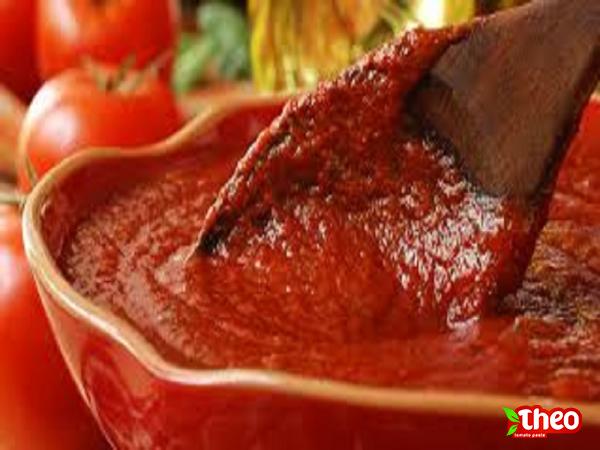 7. Regional and Ethnic Market Opportunities: The popularity of Italian cuisine has spread far and wide, and this global acceptance brings opportunities for both traditional and fusion applications of thick Italian tomato sauce. Restaurants and food establishments catering to specific ethnic cuisines, or fusion concepts combining Italian flavors with local ingredients, can expand their menu options with the inclusion of this sauce. Targeting these niche markets can be a strategic way for businesses to differentiate themselves and tap into new customer segments. 8. Branding and Marketing Strategies: In an increasingly crowded market, branding and marketing play a vital role in capturing consumer attention and loyalty. Brands that effectively communicate their product’s unique qualities, such as traditional recipe origins, superior taste, or use of premium ingredients, stand a better chance of success. Engaging social media campaigns, collaborations with food influencers, and participation in culinary events can help boost brand visibility and generate consumer interest. 9. Product Innovation and Packaging: Innovation in product formulation and packaging design can set businesses apart from their competitors. Expanding product lines to include gluten-free or vegan options caters to specific dietary lifestyles and preferences. Additionally, convenient packaging options, such as travel-sized pouches or portion-controlled containers, can attract busy consumers who prioritize convenience and ease of use. 10. Supply Chain and Sustainability Considerations: As consumer awareness about sustainability grows, businesses need to address various supply chain considerations. This includes sourcing tomatoes from sustainable farms, prioritizing environmentally friendly packaging materials, and optimizing transportation routes to minimize carbon footprint. Adhering to sustainable practices not only appeals to eco-conscious consumers but also helps build a positive brand image and fosters long-term business growth. Conclusion: The business of thick Italian tomato sauce offers a universe of opportunities for entrepreneurs, manufacturers, and distributors alike. With rising consumer demand for authentic, healthy, and diverse options, businesses that focus on quality ingredients, innovative flavors, and effective marketing strategies can flourish in this competitive landscape. By keeping abreast of market trends and embracing sustainability, businesses can carve a niche in this ever-evolving industry and satisfy the cravings of tomato sauce enthusiasts worldwide.
7. Regional and Ethnic Market Opportunities: The popularity of Italian cuisine has spread far and wide, and this global acceptance brings opportunities for both traditional and fusion applications of thick Italian tomato sauce. Restaurants and food establishments catering to specific ethnic cuisines, or fusion concepts combining Italian flavors with local ingredients, can expand their menu options with the inclusion of this sauce. Targeting these niche markets can be a strategic way for businesses to differentiate themselves and tap into new customer segments. 8. Branding and Marketing Strategies: In an increasingly crowded market, branding and marketing play a vital role in capturing consumer attention and loyalty. Brands that effectively communicate their product’s unique qualities, such as traditional recipe origins, superior taste, or use of premium ingredients, stand a better chance of success. Engaging social media campaigns, collaborations with food influencers, and participation in culinary events can help boost brand visibility and generate consumer interest. 9. Product Innovation and Packaging: Innovation in product formulation and packaging design can set businesses apart from their competitors. Expanding product lines to include gluten-free or vegan options caters to specific dietary lifestyles and preferences. Additionally, convenient packaging options, such as travel-sized pouches or portion-controlled containers, can attract busy consumers who prioritize convenience and ease of use. 10. Supply Chain and Sustainability Considerations: As consumer awareness about sustainability grows, businesses need to address various supply chain considerations. This includes sourcing tomatoes from sustainable farms, prioritizing environmentally friendly packaging materials, and optimizing transportation routes to minimize carbon footprint. Adhering to sustainable practices not only appeals to eco-conscious consumers but also helps build a positive brand image and fosters long-term business growth. Conclusion: The business of thick Italian tomato sauce offers a universe of opportunities for entrepreneurs, manufacturers, and distributors alike. With rising consumer demand for authentic, healthy, and diverse options, businesses that focus on quality ingredients, innovative flavors, and effective marketing strategies can flourish in this competitive landscape. By keeping abreast of market trends and embracing sustainability, businesses can carve a niche in this ever-evolving industry and satisfy the cravings of tomato sauce enthusiasts worldwide.



